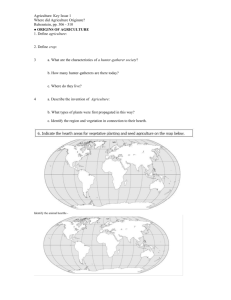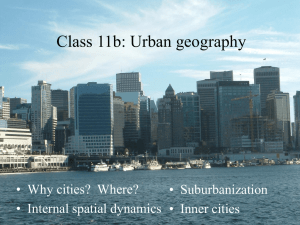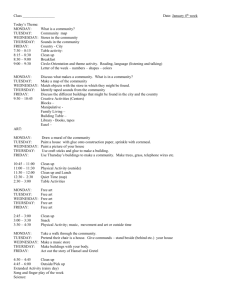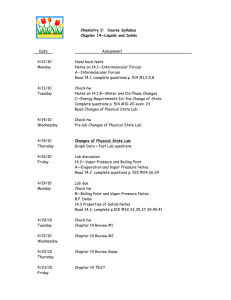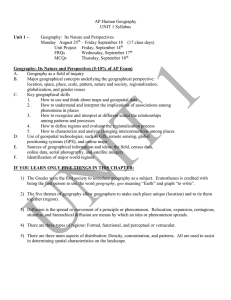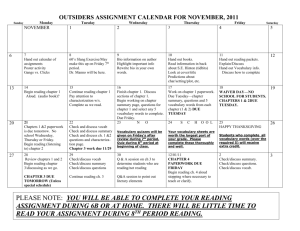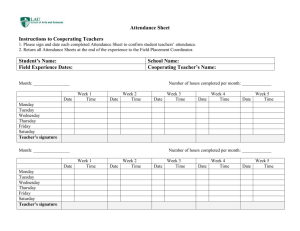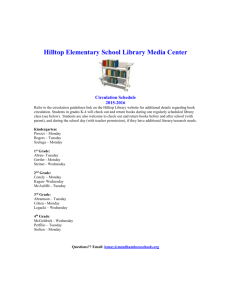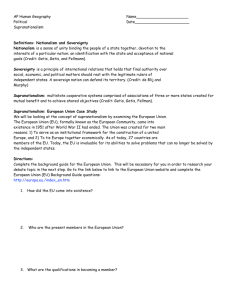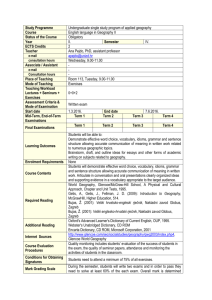AP Human Geography UNIT 3 Unit 3 Cultural Patterns and
advertisement
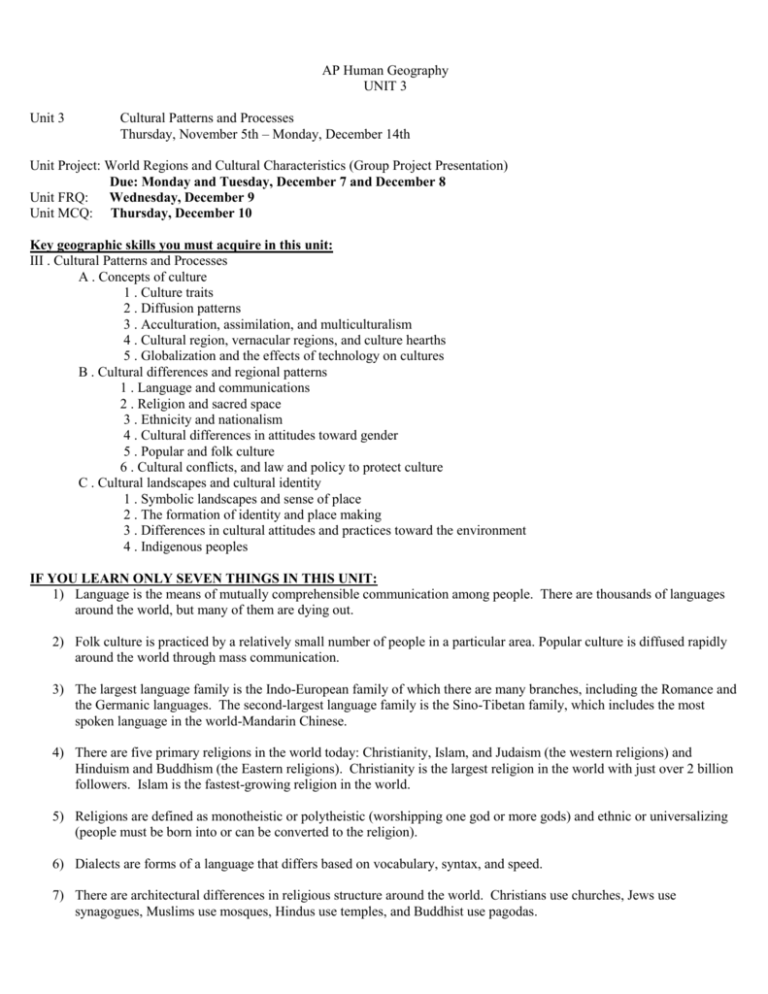
AP Human Geography UNIT 3 Unit 3 Cultural Patterns and Processes Thursday, November 5th – Monday, December 14th Unit Project: World Regions and Cultural Characteristics (Group Project Presentation) Due: Monday and Tuesday, December 7 and December 8 Unit FRQ: Wednesday, December 9 Unit MCQ: Thursday, December 10 Key geographic skills you must acquire in this unit: III . Cultural Patterns and Processes A . Concepts of culture 1 . Culture traits 2 . Diffusion patterns 3 . Acculturation, assimilation, and multiculturalism 4 . Cultural region, vernacular regions, and culture hearths 5 . Globalization and the effects of technology on cultures B . Cultural differences and regional patterns 1 . Language and communications 2 . Religion and sacred space 3 . Ethnicity and nationalism 4 . Cultural differences in attitudes toward gender 5 . Popular and folk culture 6 . Cultural conflicts, and law and policy to protect culture C . Cultural landscapes and cultural identity 1 . Symbolic landscapes and sense of place 2 . The formation of identity and place making 3 . Differences in cultural attitudes and practices toward the environment 4 . Indigenous peoples IF YOU LEARN ONLY SEVEN THINGS IN THIS UNIT: 1) Language is the means of mutually comprehensible communication among people. There are thousands of languages around the world, but many of them are dying out. 2) Folk culture is practiced by a relatively small number of people in a particular area. Popular culture is diffused rapidly around the world through mass communication. 3) The largest language family is the Indo-European family of which there are many branches, including the Romance and the Germanic languages. The second-largest language family is the Sino-Tibetan family, which includes the most spoken language in the world-Mandarin Chinese. 4) There are five primary religions in the world today: Christianity, Islam, and Judaism (the western religions) and Hinduism and Buddhism (the Eastern religions). Christianity is the largest religion in the world with just over 2 billion followers. Islam is the fastest-growing religion in the world. 5) Religions are defined as monotheistic or polytheistic (worshipping one god or more gods) and ethnic or universalizing (people must be born into or can be converted to the religion). 6) Dialects are forms of a language that differs based on vocabulary, syntax, and speed. 7) There are architectural differences in religious structure around the world. Christians use churches, Jews use synagogues, Muslims use mosques, Hindus use temples, and Buddhist use pagodas. Day Thursday November 5 Friday November 6 Monday November 9 Tuesday November 10 Wednesday November 11 Thursday November 12 Friday November 13 Monday November 16 Tuesday November 17 Wednesday November 18 Thursday November 19 Friday November 20 Monday November 23 Tuesday November 24 Monday November 30 Tuesday December 1 Wednesday December 2 Thursday December 3 Friday December 4 Monday December 7 Tuesday December 8 In Class Clicker Check Getis 196-206 Test Corrections Vocab Quiz Home Work Vocab Cards and Quiz Tomorrow Rubenstein 107-121/Getis 207-213 (Stop at Language) Culture and Cultural Landscape Popular Culture Clicker Check Rubenstein 107-121/Getis 207-213 College Counseling Presentations Popular v. Folk Culture Clicker Check Rubenstein 122-138 Challenges to Culture/Diffusion Vocab Quiz Race Race v. Ethnicity Clicker Check Fouberg 139-162 Division of area by Race Early Dismissal Gender and Sexuality Clicker Check Rubenstein 238-255 Gender Inequality Vocab Quiz Rubenstein 122-138 Fouberg 139-162 Rubenstein 238-255 Getis 213-222/Rubenstein 141-158 Language Language Clicker Check Getis 213-222/Rubenstein 141-158 Religion Rubenstein 158-179 (No Clicker Check 12/1, Reading Due Wed. 12/2) Religion and Diffusion Getis 223-235 Religion and Conflict Religion Cont. Clicker Check Getis 223-235 Cultural Region Group Work Vocab Quiz Group Project Presentations Group Project Presentations Rubenstein 183-223 (No Clicker Check, but this will be on the Unit Test!) Wednesday December 9 Thursday December 10 Friday December 11 Monday December 14 FRQ Test MCQ Test MCQ Test Corrections MCQ Test Corrections/Review for Exam FINAL EXAM SCHEDULE: Tuesday, December 15: Periods 1 and 2 Wednesday, December 16: Periods 3 and 4 Thursday, December 17: Periods 5 and 6 Friday, December 18: Periods 7 and Advocacy/Activity

